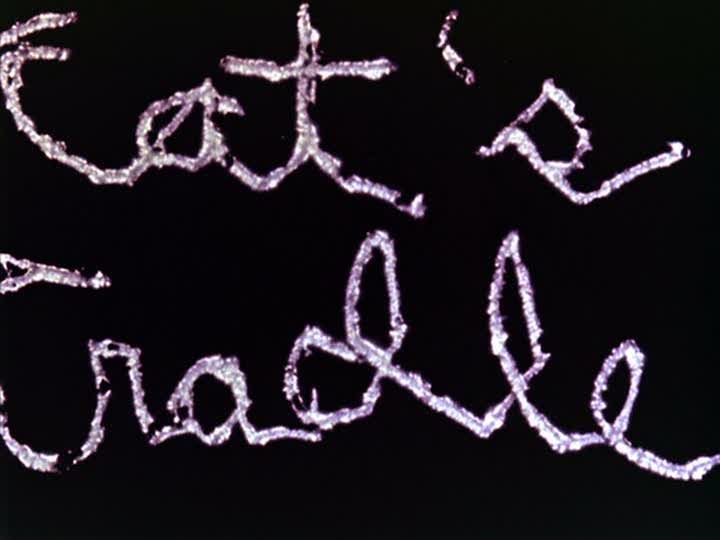
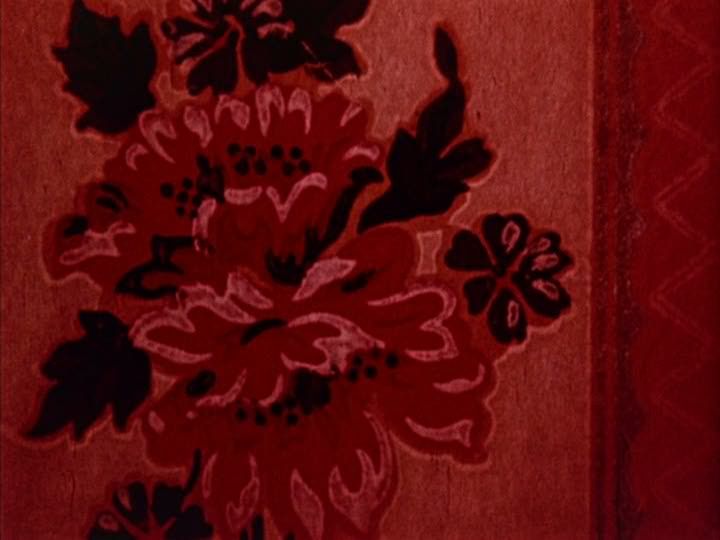
Stan Brakhage's prolific and esoteric career as an avant-garde filmmaker is so packed with masterful works of art that it's difficult to pick a single film to represent him. The six-minute Cat's Cradle is only one of his great shorts, but it is perhaps the densest and most compact expression of what makes Brakhage's work so profound — and so profoundly moving. The film is an evocative montage of a single morning, comprised of repeating images shot in Brakhage's home: wallpaper, bedsheets, his cat, his wife Jane, himself, some friends, lamps, vases. Each image is onscreen for only seconds at a time, and yet each one has a potent sensual impact created by Brakhage's intuitive handling of light and color, and his feel for the frantic pace of his visual streams. The film is dominated by sensual reds and oranges, by images of golden light playing across a bed or a foot. Brakhage's camera dips in for intimate, hazy closeups of his wife or his cat, paying equal attention to the folds in Jane's clothes, the shadows etched into her face, or the wiry strands of whiskers projecting from the cat's cheeks.
The film is both visceral and meditative. Its rapid montage ensures that no single image ever lasts for very long; each precise yet casual framing is there and then gone again before it has fully registered. And yet the cumulative mood of the film is languid rather than frenetic, despite the pace of the editing. It creates a vivid and powerfully felt impression of a lazy morning, of lovers lounging around the house, enjoying one another's company, doing routine chores or doing nothing. The repetition of images enhances this impression: the same shots of Brakhage and Jane recur again and again, reinforcing the languor of this morning. This is a deeply affecting film, an ode to domesticity. It is sensual without being explicitly sexual; its pleasures, as in many of Brakhage's best films, are the pleasures of the world, the pleasures especially of vision and sensation.
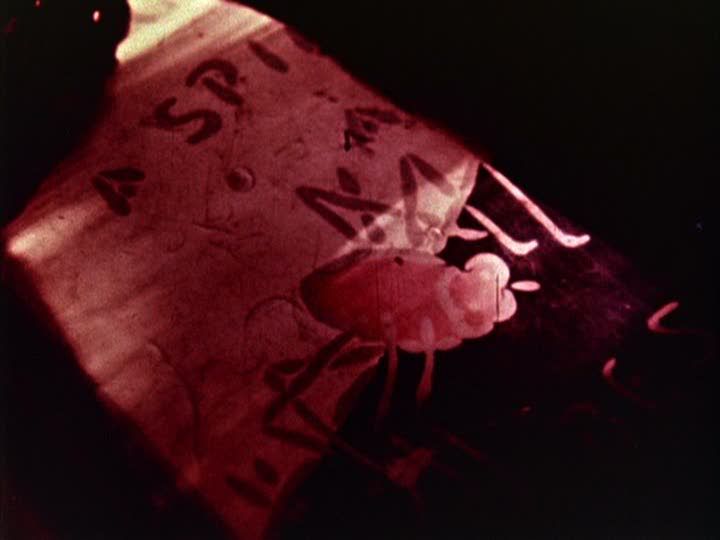
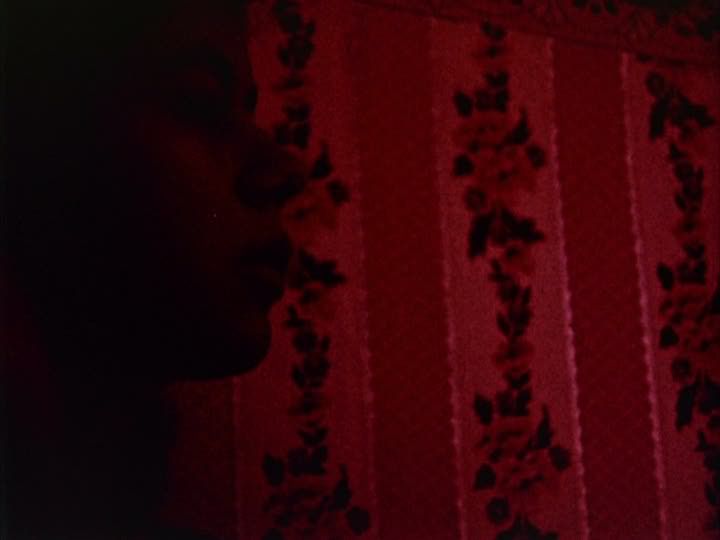
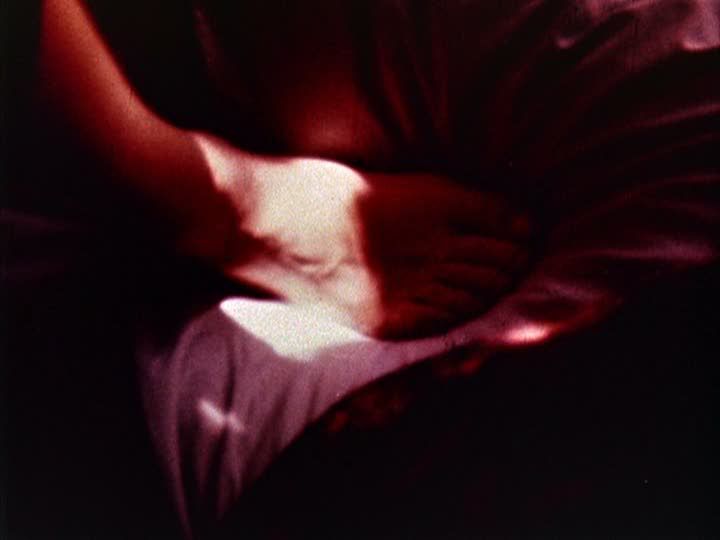
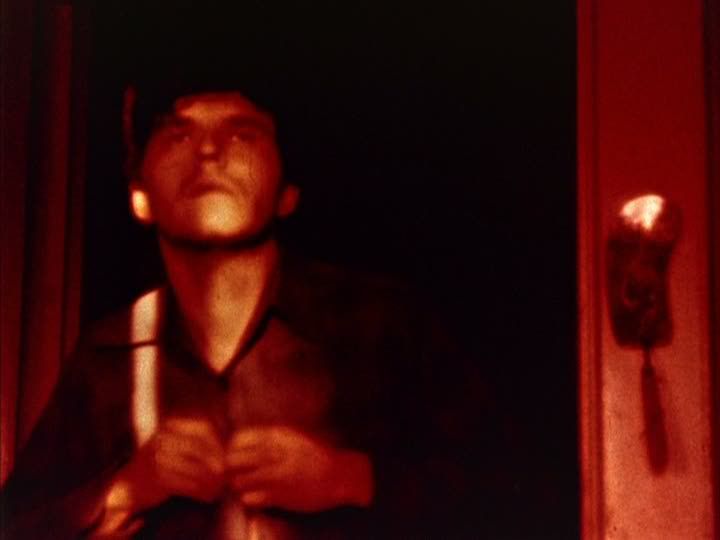
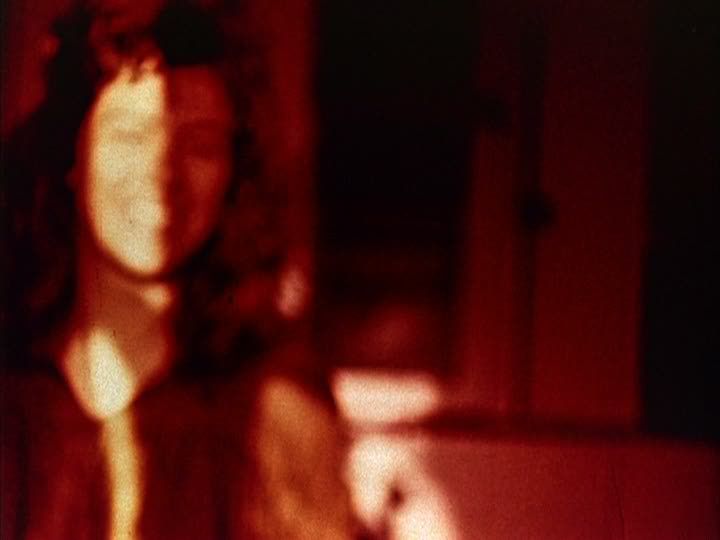
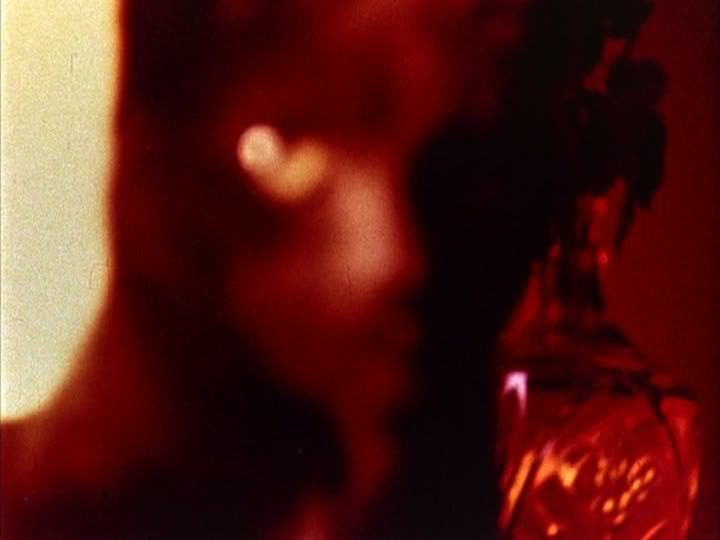

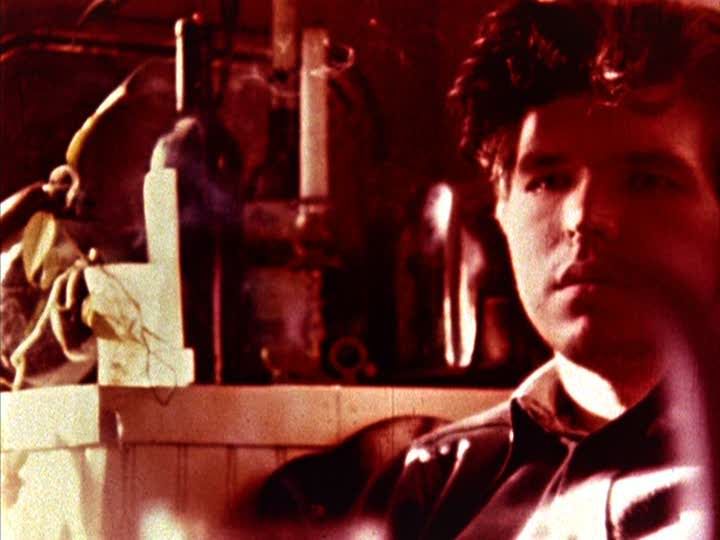
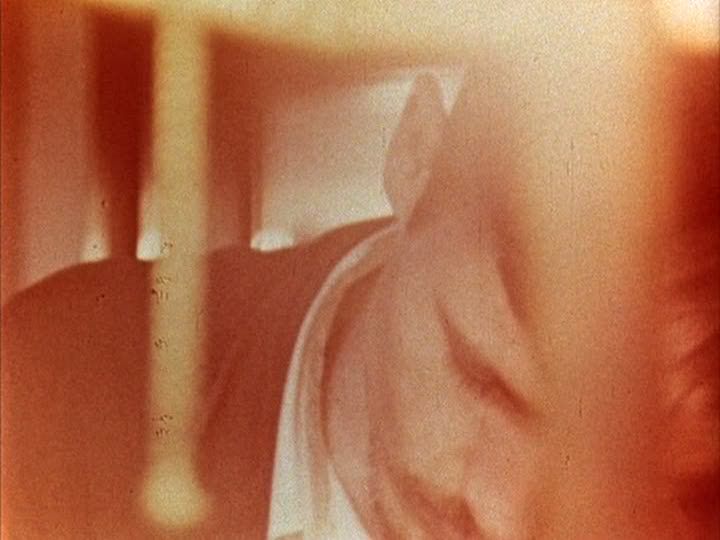
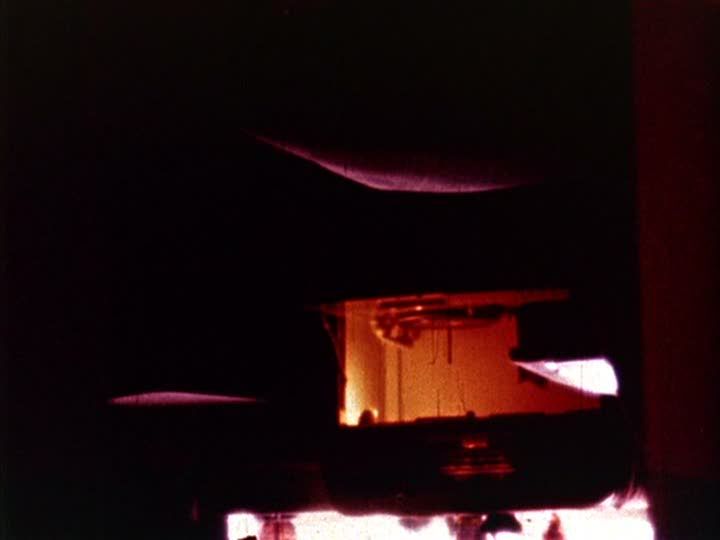
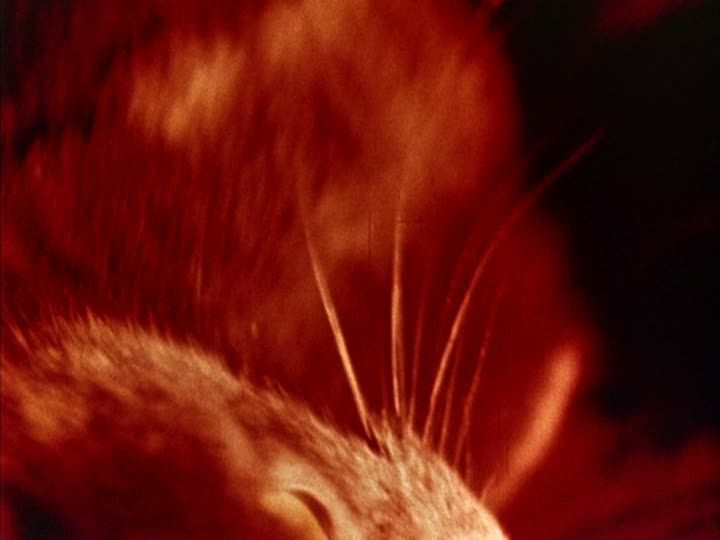
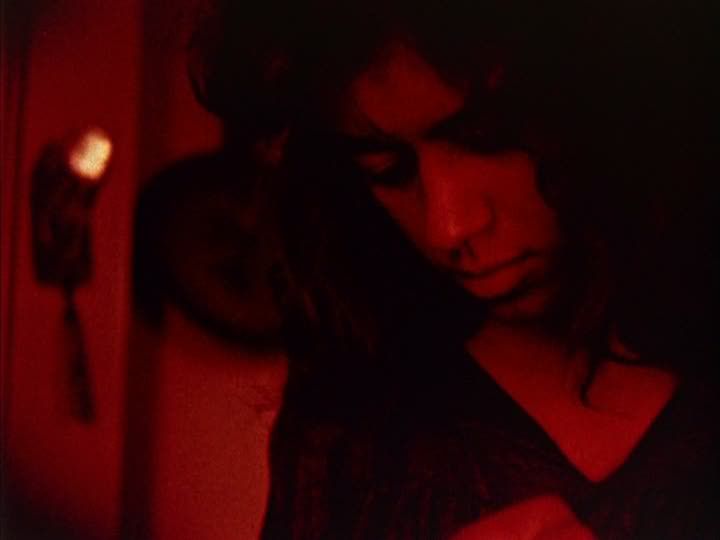
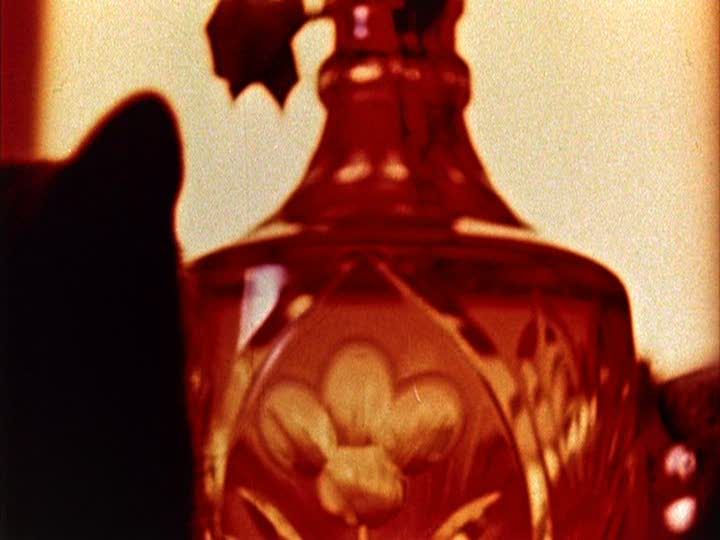
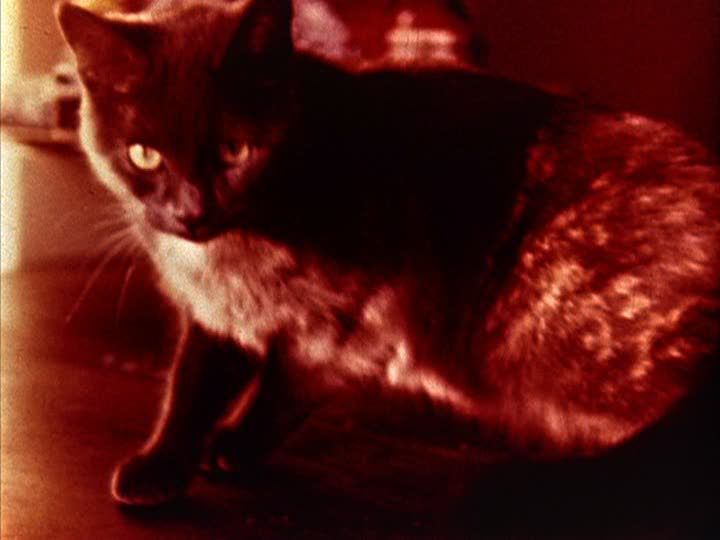
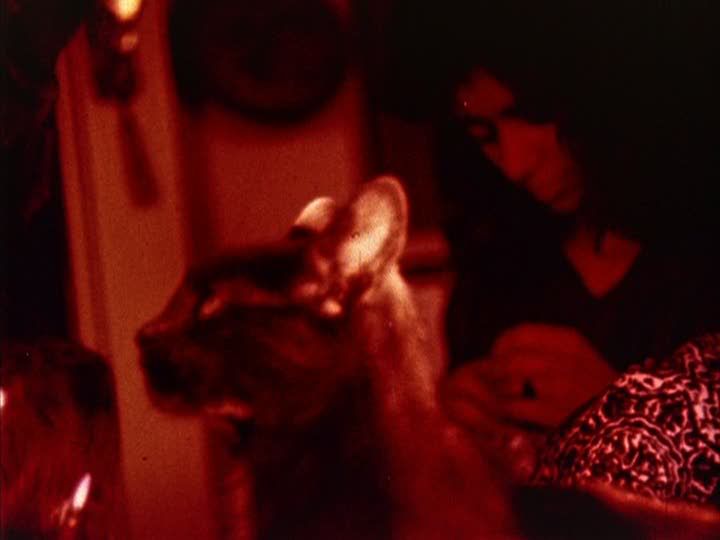
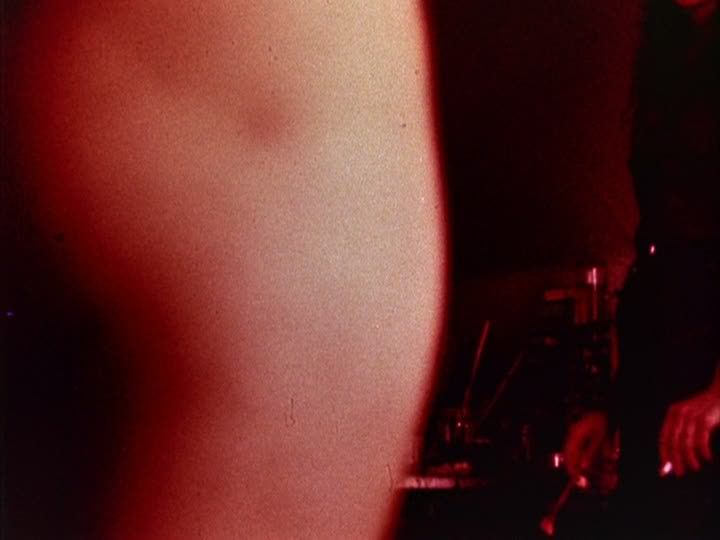
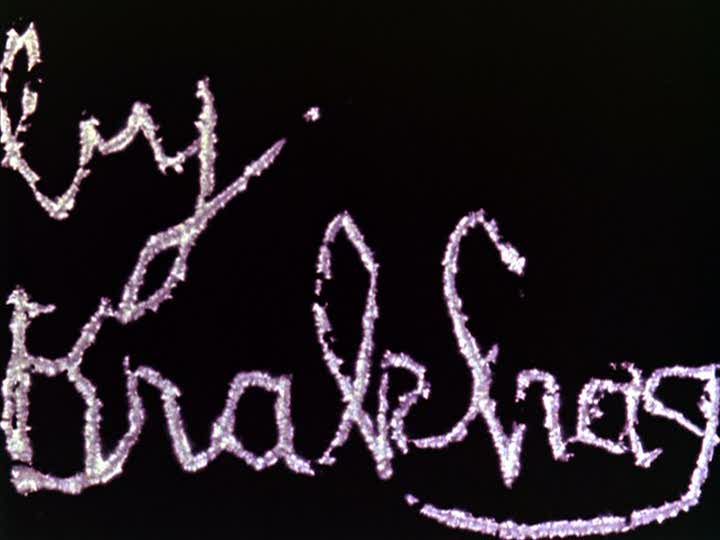

4 comments:
I've just watched this thanks to your review, Ed.
I liked it quite a lot. It is tender and beautiful and this is partly because it is silent. The quick editing leaves little movements unfinished. This gives the film real life because the beginning and end of shots can't enclose the action and it continues in our mind.
"This is a deeply affecting film, an ode to domesticity."
Well said, and there are few films that can do that without irony and sentimentality. Very nice. Thanks.
Nice, glad you enjoyed it, Stephen. It's one of my favorite Brakhage shorts. You're right about the silence, too; there's a reason Brakhage was so resistant to soundtracks on most of his films, preferring to deal solely in the rhythms of the editing and the internal rhythms of the images.
Great succinct evocation of the film's atmosphere - "languid rather than frenetic" hits the nail on the head. Looking a bit into the film recently, I was surprised to discover that one of the actresses (not his wife) resented his making her play the standard "domestic" role, where she wears an apron and chops things up in the kitchen. It's funny how, even in a film as non-narrative and seemingly relaxed as Cat's Cradle, social issues can arise (indeed, from what I understand, feminists were pretty critical of Brakhage in general). To me, that's one of the film's strengths - that it is not simply abstract (something that can be great in and of itself) but a fusion of identifiable content and loose stream of consciousness. I think this is true of many avant-garde films; there's a free interplay between the representational and abstract aspects.
Yeah, it's especially true in Brakhage, at least before he started making entirely abstract painted works, that his films include a lot of representational content, and at times it's even possible to infer narrative or semi-narrative content from his streams of images. He started out making narrative psychodramas back in the 50s, and never entirely abandoned that impulse even as his work quickly started to tip more towards abstraction. Actually, I think it's difficult to make a truly, totally abstract work: the human mind will almost always tend to fill in stories, to make visual/representational connections, to try to decode abstraction in ways that relate back to the tangible world. Even some of Brakhage's abstract painted films, like the very sensual Love Song, tend to prompt representational associations.
And yeah, Brakhage strikes me as a very definitively *male* filmmaker, if that makes sense, so it makes sense that he opens himself up to criticism from feminists.
Post a Comment